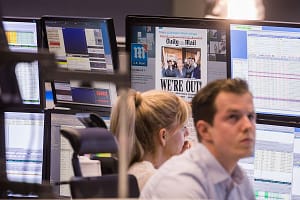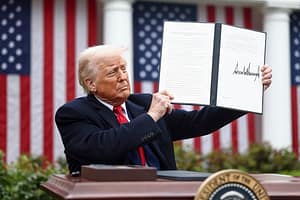The second tier of emerging markets may offer the best opportunities

Ask a politician where British firms should export to and you’ll get the same answer every time. China and India. George Osborne bangs on about them like he’s got Tourette’s.
Ask an entrepreneur and you might get a different answer.
The Next-11 economies are the second tier of emerging markets. These economies offer all the explosive growth of China and India, but with many other advantages too. If you are spinning the globe and wondering where to stick your pin in, they are definitely worth a look.
The 11 are: Bangladesh, Egypt, Indonesia, Iran, Mexico, Nigeria, Pakistan, Philippines, Turkey, South Korea, and Vietnam.
It’s an odd bunch.
Bangladesh is third world. South Korea is a technology superpower, home to Samsung, Hyundai and LG, and has faster broadband and longer life expectancy than us.
Nigeria is Sub-Saharan Africa’s only representative.
So what have they got in common?
According to Jim O’Neill, the Goldman Sachs economist who came up with the idea, they are simply the largest population countries behind the other grouping he invented, the BRICS of Brazil, Russia, India and China.
O’Neill also points out that they share exceptional potential for growth. Whilst Brazil coughs and splutters with 2% growth, Vietnam is expanding close to 6% annually.
Goldman Sachs uses a mix of 13 metrics to determine the capacity of a state to generate growth. This method suggests that South Korea will outstrip every country in the G8 apart from Canada.
The Next-11 each possess big markets, emerging middle classes, and vitally, are relatively untapped.
Take Nigeria. Ten years ago almost no one in Nigeria had a mobile phone. In the last five years more than 30 million have acquired a subscription, taking the number to 70 million – half the population. A further 20 million are expected to get a mobile in the next five years.
Think about the potential for retailing those phones, for selling accessories such as chargers and phone covers. The UK is a saturated market. Nigeria is Wild West, still being carved up by entrepreneurs prepared to take a punt on virgin sectors such as mobiles.
The same is true of financial services. Only one in five Nigerians has a bank account. Back home British banks spend a fortune trying to lure customers to switch from one account to another. Here is a market with four-fifths of the population yet to play for.
These Next-11 nations also have astonishing levels of technical expertise which are rarely appreciated by Brits until they see for themselves.
Recruitment consultancy and IT outsourcer Harvey Nash employs 4,500 in Vietnam. It has two bases there, which are behind more than 30% of the firm’s software outsourcing revenue. Incredibly the move to Vietnam came about when chairman Paul Smith held a meeting at a Vietnamese restaurant:
“A client at the time wanted us to base Harvey Nash’s software business arm in India, but while discussing this with him in a Vietnamese restaurant, the waiter overheard our conversation and suggested we meet his brother, a software engineer in Vietnam and set up there instead.
“We investigated the market and initially partnered with a local company in a joint venture capacity before fully acquiring the business in 2006 and growing it from there.”
If you are interested in exploring any of these markets then the first place to look for help is UKTI. This government department has representatives and offices in all of the Next-11 economies.
This year it helped porcelain maker Royal Crown Derby to find customers in Mexico when marketing director Simon Willis and export manager Alison Peverley took part in a tea party organised at the British Embassy, co-hosted with Twining’s Tea. The event brought them into contact with potential stockists, and shortly after the firm signed a contract with El Palacio de Hierro department store.
Naturally, the Next-11 present challenges, too. Corruption is rife. But, arguably, corruption is rife everywhere outside Europe and the Anglosphere.
Ask the experts:
One reason firms are reluctant to experiment with new markets is uncertainty of how to ship goods. The solution? Talk to the shippers. They will bend over backwards to win new clients, and are more than willing to share the expertise of overseas markets.
Take DHL. It provides export guides for a long list of major markets. For example, the DHL website contains a large section on exporting to Brazil. You’ll find explanation of how Mercosul tariffs work, information covering everything from cultural variations to shipping times, and links to other useful guides, such as the Brazilian government’s own guide to exporting to Brazil.
DHL can also explain key ideas, such as containerisation, cold storage supply chains and packaging. International shipping is such a mature, well organised sector there is no need to cite it as a reason to shy away from exporting.
Energy and transport are two more intractable problems. In Nigeria only 20% of power is produced by the National Grid. The rest comes from diesel generators, and costs four times as much as grid-sourced power. Goldman Sachs warns: “if this status quo remains, it will be a significant drag on Nigeria’s growth prospects.”
Road systems are frequently chaotic. In Bangladesh fewer than 15% of roads are paved. Goldman Sachs says: “This can destroy productivity in the country, particularly given the risk of heavy rainfall and flooding that would render unpaved roads unusable.”
On the plus side, the opportunities to remedy these short-comings are huge. The Next-11 will need to build around 1 million kilometres of road over the next 20 years. Impressive, when you consider the dearth of new road projects here in the UK.
But the real lure is the chaos, and openness of the Next-11. Go to China and you’ll find every Western brand present in Shanghai and Beijing. Joe Studwell’s book The China Dream is a history of the appalling losses suffered by American and European firms trying to crack the Chinese market, and failing to deal with the bureaucracy, the logistics and the flagrant breaches of copyright law.
By contrast, the Next-11 are the new frontier. Instead of elbowing your way past dozens of other Westerners in Nanjing port, you could be booking a dozen meetings in Lagos and Abuja, home to 14 million people, and providing access to the 162 million Nigerian population (a sixth of all Africans).
Or Ho Chi Minh city (a place so socialist it has its own stock exchange).
Put it like this.
Do you want to spend the next decade doing deals in the Doncaster Travelodge, or the Mandarin Oriental in Jakarta?
Barely needs answering, does it?
This article was brought to you in partnership with DHL, our Export Week partners

More like this:
Need help with exporting? Here are five great export resources
Small firms do not understand exporting challenges
GPS selected as London export champions for international trade





Leave a Comment